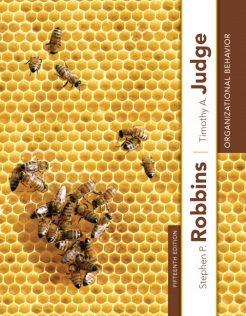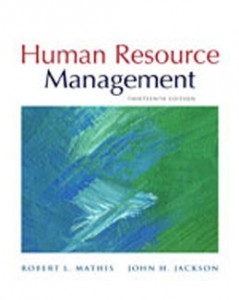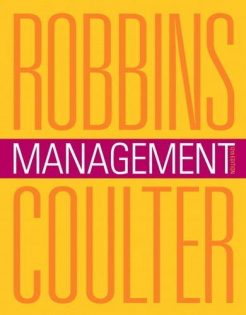Description
Patterns of Entrepreneurship Management
Patterns of Entrepreneurship Management Jack M Kaplan
Patterns of Entrepreneurship Management Jack M Kaplan 4th
Patterns of Entrepreneurship Management Jack M Kaplan 4th Test Bank
Test Bank for Patterns of Entrepreneurship Management 4th Edition Jack M Kaplan Download
***THIS IS NOT THE ACTUAL BOOK. YOU ARE BUYING the Test Bank in e-version of the following book***
Name: Patterns of Entrepreneurship Management
Author: Jack M Kaplan
Edition: 4th
ISBN-10: 1118358538
ISBN-13: 978-1118358535
Type: Test Bank
– The test bank is what most professors use an a reference when making exams for their students, which means there’s a very high chance that you will see a very similar, if not exact the exact, question in the test!
– The file is either in pdf, doc, rtf or zipped in the package and can easily be read on PCs and Macs.
– Delivery is INSTANT. You can download the files IMMEDIATELY once payment is done.
If you have any questions, please feel free to contact us. Our response is the fastest. All questions will always be answered in 6 hours., most of the time within 30mins
We also faced similar difficulities when we were students, and we understand how you feel.
But now, with the Patterns of Entrepreneurship Management 4th Test Bank, you will be able to
* Anticipate the type of the questions that will appear in your exam.
* Reduces the hassle and stress of your student life.
* Improve your studying and also get a better grade!
* Get prepared for examination questions.
* Can save you time and help you understand the material.
This is the quality of service we are providing and we hope to be your helper.
Delivery is in the next moment. Test Bank is accurate.
Prepare to receive your Patterns of Entrepreneurship Management 4th Test Bank in the next moment.
ISBN-10: 1118358538
ISBN-13: 978-1118358535
If you have any questions, or would like a receive a sample chapter before your purchase, please contact us at inquiry@testbankcorp.com
Chapter 2: The Art of Innovation
True/False
1. The frameworks in which a sustainable, high-profit company is constructed are called business models.
Ans: True Page: 26
2. Unfortunately, North America has one of the lowest percentages of people with Internet access.
Ans: False Page: 27
3. Geographical location no longer provides any significant advantage for access to major sources of capital.
Ans: True Page: 29
4. A product life cycle is the time that a product is able to command a high profit margin in the market before it becomes obsolete or develops intense competition.
Ans: True Page: 29
5. Product development times have increased from 200 days three years ago to an average of 225 days now.
Ans: False Page: 29
6. Fortunately, it is becoming easier for a company to build around a single product idea without strong patent protection.
Ans: False Page: 30
7. The first step for any entrepreneur is to generate an idea for a new business.
Ans: True Page: 39
8. Asking the right questions and preparing the business plan are components of phase 3 in the five phases to success.
Ans: True Page: 41
9. To eliminate receiving questionable data, you should train and monitor survey recorders and telephone interviews to ensure consistent results.
Ans: True Page: 44
10. The final phase of the five step model of success is “Develop the Plan.”
Ans: False Page: 46
Short Answer / Fill in the Blank
11. Successful ____________ is the use of new technological knowledge, and/or new market knowledge, employed within a business model that can deliver a new product and/or service to customers who will purchase at a price that will provide profits.
Ans: innovation Page: 31
12. The ___________ is often used to illustrate the difference in which the performance achieved by new innovation is plotted against time.
Ans: S-curve Page: 32
13. Usually, improvements can be made with ____________ innovations, pushing the original curve higher.
Ans: incremental Page: 32
14. The term _______________ is often used to describe innovations that disrupt the status quo.
Ans: disruptive innovation Page: 33
15. ___________ are sources of ideas.
Ans: Patents Page: 39
16. Many new companies are built around a radical or ____________ technology.
Ans: breakthrough Page: 40
17. A window of opportunity is a __________________ during which opportunities exist before something else happens to eliminate them.
Ans: time horizon Page: 42
18. ________________ are the value of benefits lost when one decision or idea alternative is selected over another.
Ans: Opportunity costs Page: 42
19. A(n) _______________ charts the current and future components of the business in about thirty to forty pages.
Ans: business plan Page: 45
20. Sufficient ___________ is required to sustain the company for a specific length of time, possibly a one- or two-year period.
Ans: capital Page: 46
Multiple Choice
21. More than ___________ new web pages are being added daily to the Internet.
a. 18 million
b. 500,000
c. 50 million
d. 7 million
Ans: D Page: 27
22. ___________ funds are a very small part of total growth capital.
a. Technology
b. Trade
c. Venture capital
d. International
Ans: C Page: 29
23. A product life cycle is continually:
a. increasing
b. declining
c. increasing in a step ladder pattern
d. fluctuating
Ans: B Page: 29
24. Incremental innovation means that:
a. A start-up company grows slowly.
b. Improvements are made on existing products and services.
c. Innovation is only applied to the way that things are made.
d. It is the safest strategy for a start-up to follow.
Ans: B Page: 31
25. Radical innovation means that:
a. Nothing from the past is retained.
b. It applies only to products.
c. It changes the rules of competition.
d. It is too risky for a start-up to follow.
Ans: C Page: 32
26. Which of the following is not on the list of some important innovations by U.S. small firms in the last century:
a. GPA
b. Airplane
c. Zipper
d. Heat sensor
Ans: A Page: 34
27. All of the following are ways to build upon already existing material and still provide a profit-driven concept except:
a. Market the product at a higher price.
b. Add value to an existing product or service.
c. Develop or redesign a new version of an existing product.
d. Develop ideas as an extension or redesign an existing service.
Ans: A Page: 39
28. There are more than ___________ patents issued in the United States.
a. 31 million
b. 17 million
c. 8 million
d. 60 million
Ans: C Page: 39
29. Only about ________ percent of existing patents have actually been commercialized.
a. 20
b. 10
c. 2
d. 32
Ans: B Page: 40
30. Of the five phases of success, which one is where the opportunity would be seized:
a. Phase 1
b. Phase 2
c. Phase 3
d. Phase 4
Ans: A Page: 41
31. Which of the following is not a technology factor:
a. Industry standards
b. Niche market applications
c. Infrastructure replacement
d. Technology generation
Ans: D Page: 41
32. Which of the following is not an economic factor?
a. Better service
b. Productivity gains
c. Market changes
d. Government and privacy issues
Ans: C Page: 42
33. Of the five phases of success, which one is Phase 2?
a. Develop the Plan
b. Manage the Business
c. Determine the Resources Needed
d. Investigate the Need through Market Research
Ans: D Page: 42
34. Of the five phases of success, Phase 3 is:
a. Develop the Plan
b. Manage the Business
c. Determine the Resources Needed
d. Investigate the Need through Market Research
Ans: A Page: 45
35. Which of the following area of research help answer the question: “Can the product/service be patented or copyrighted?”
a. Sales
b. Proprietary
c. Niche/competition
d. Cost and manufacture
Ans: B Page: 43
36. To eliminate receiving questionable data, all of these pitfalls must be avoided except:
a. Train and monitor survey recorders.
b. Make certain that the answers are accurate by maintaining an objective method of questioning.
c. Ensure that all of the participants are asked the same questions.
d. Eliminate telephone interviews.
Ans: D Page: 44
37. All of the following are cost-cutting recommendations except:
a. Use search engines and web pages
b. Use social media methods to access potential customers
c. Test only one product at a time
d. Use the telephone instead of mail survey
Ans: C Page: 45
38. ______ is(are) the backbone of the business.
a. Employees
b. Business plan
c. Phases of Success
d. Data Base
Ans: B Page: 45
39. Of the five phases of success, which one is Phase 4?
a. Determine the Resources Needed
b. Develop the Plan
c. Investigate the Need through Market Research
d. Seize the Opportunity
Ans: A Page: 46
40. Of the five phases of success, which one is Phase 5?
a. Seize the Opportunity
b. Develop the Plan
c. Investigate the Need through Market Research
d. Manage the Business
Ans: D Page: 46
41. Which of the following criteria is least important when evaluating an opportunity?
a. Size of the market
b. Competitors
c. Value provided to the targeted customers
d. Having the resources in place to execute on the plan
Ans: D Page: 47-48
42. Which of the following criteria would most lead you to question the viability of an opportunity?
a. Gross margin on sales after three years is 25%.
b. Total available domestic market is$80MM.
c. The market is growing at 60% per annum.
d. You only have two customers willing to buy your product currently.
Ans: A Page: 47-48
43. The evaluation screening for patent protection includes all of the following except:
a. If the fee for a patent search and application affordable?
b. Is the service, product, or idea unique to get a head start on the competition?
c. Is the field changing so slowly that the innovation will be valuable for at least 5 years?
d. Has an attorney discussed the options and recommended that a patent be pursued?
Ans: C Page: 48







Reviews
There are no reviews yet.